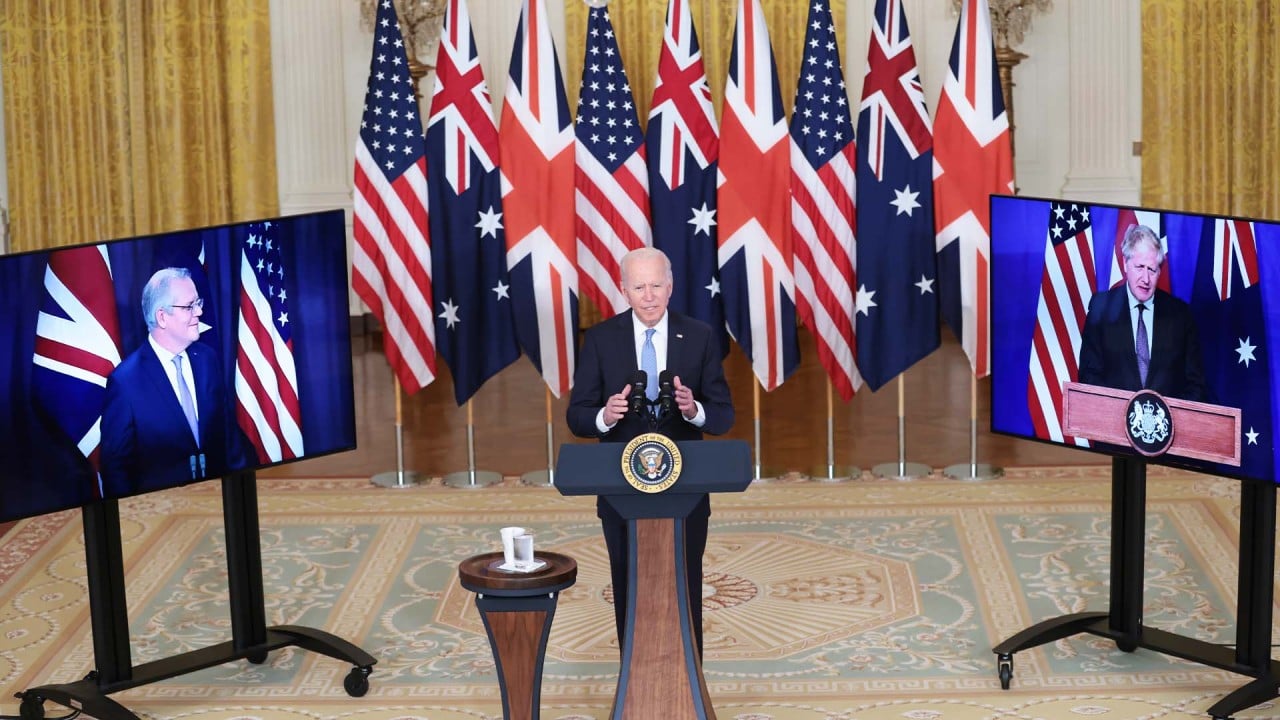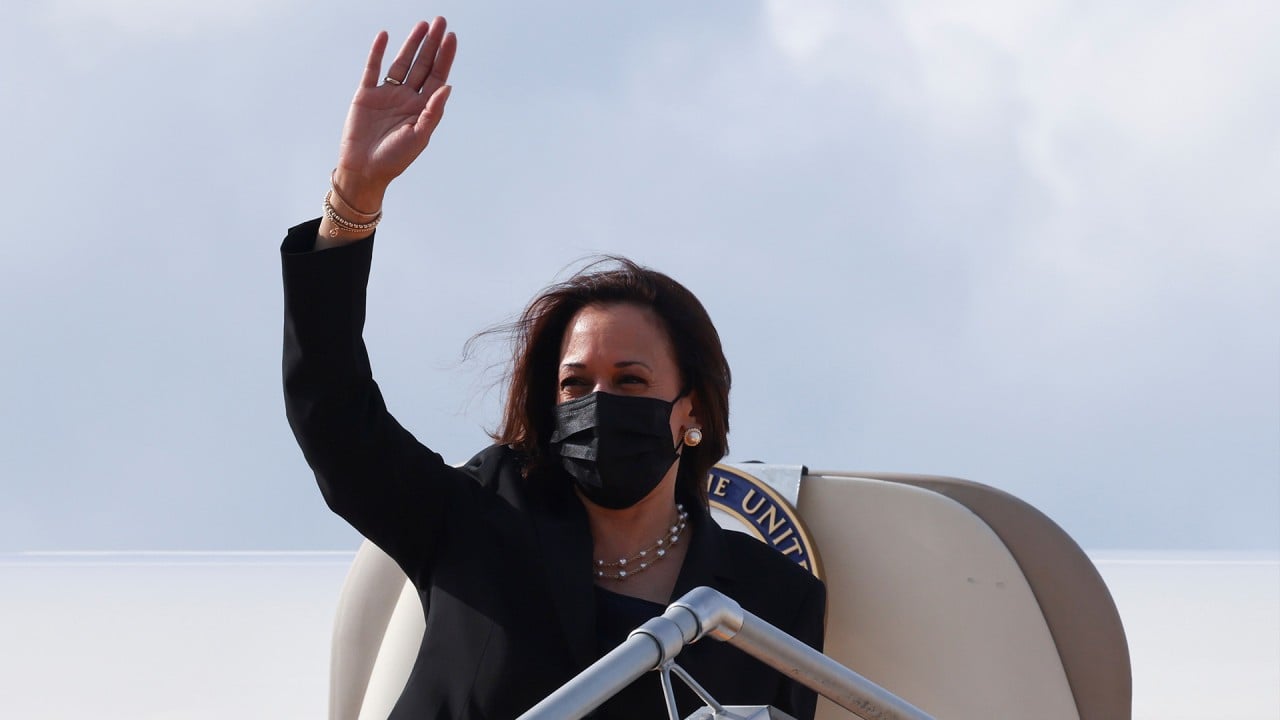
China needs stronger ties with the world to counter US sway, analyst says
- Focusing on economic development at home will only encourage other countries to fall in behind the Washington, Zhao Bingfeng says
- China also risks being drawn into a Cold War-style international system, he says
In a paper in this month’s Journal of Intelligence, Zhao Bingfeng, head of Beijing Intelli Consulting, said China should do a full assessment of US strategic activities and map out areas of potential global conflicts, adding that if China focused too much on economic development at home, other countries could fall in behind the United States.
“It will also drag China into a framework similar to that aimed at containing the Soviet Union during the Cold War era,” Zhao said in the academic journal sponsored by the Shaanxi Institute of Science and Technology Information.

03:51
US, UK, Australia announce ‘historic’ military partnership in Pacific
And China had not yet established a structured national security governance system to deal with conflicts between the two states, he said.
Zhao suggested that China counter US influence by integrating further into the world industrial economic system.
“International cooperation is a way to transmit or transform conflicting relations,” he said.
“As long as China persists in expanding its industrial economy, continues its reform and opening up ... and continues to expand economic and trade exchanges with countries around the world ... it will be difficult for the United States to establish a global strategic economic pillar that can contain China in ... a short time.”
For China, focusing on the domestic economy would not only prompt neighbours to set up a system independent of China, it would also bring Europe, Africa, South America, and even Russia into the US-dominated fold.

03:25
What has Kamala Harris achieved during her week-long trip to Southeast Asia?
To try to draw US allies into its economic orbit, China this week applied to join the Comprehensive and Progressive Agreement for Trans-Pacific Partnership, an 11-nation Asia-Pacific trade pact.
Zhao said Beijing could try to sway public opinion on the island for reunification, as well as use diplomacy and military deterrence to realise the goal.
He said national security depended on domestic stability, which in turn rested on elite groups resolving their internal conflicts and tensions.

